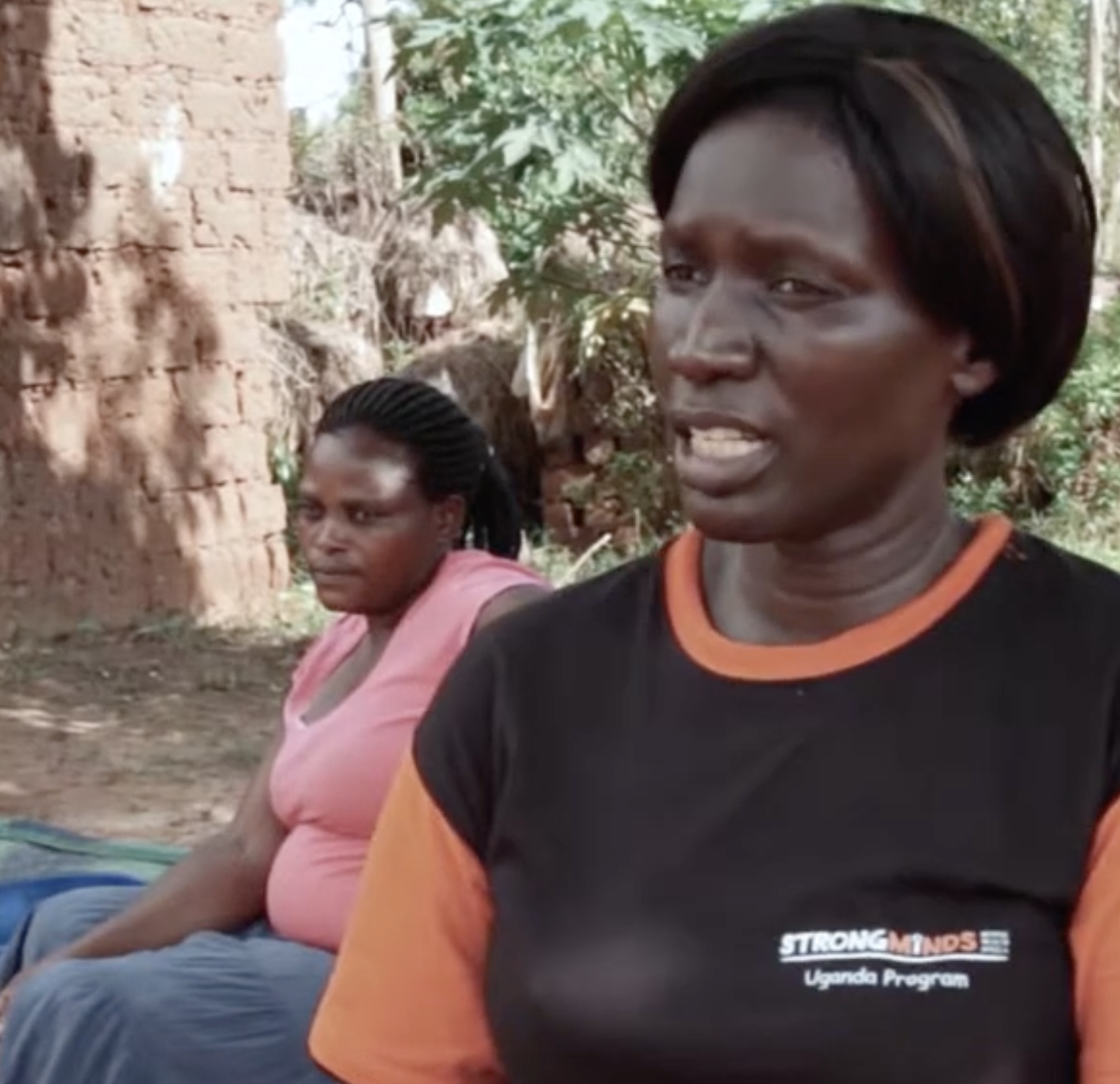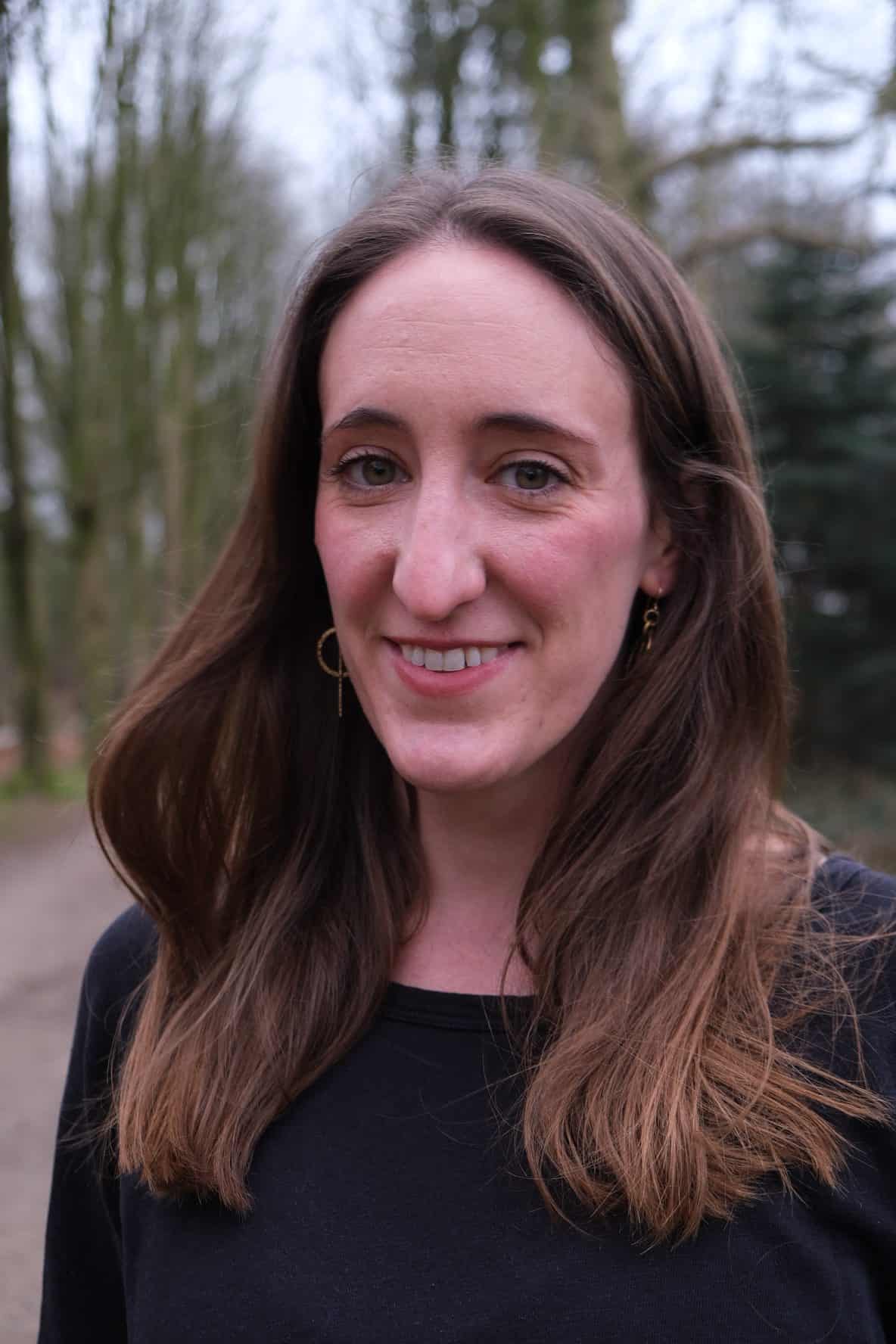Rhoda Phiri was having a hard time sleeping. She found it difficult to mingle with people in her community and at church. Even basic chores were hard. She was, she says, in a “dark corner.”
Then one day in 2020, a couple of women knocked on the door of her home in Zambia. The women were with StrongMinds, an international nonprofit that provides support for depression, particularly among women and adolescents. She accepted the women’s invitation to join a group therapy program, held under a tree in an area near her home, and as she learned about depression, she recognized the signs in herself.
“All the symptoms they were talking about, it’s like they were talking about me,” Phiri says. “It’s like they knew what I was going through.”
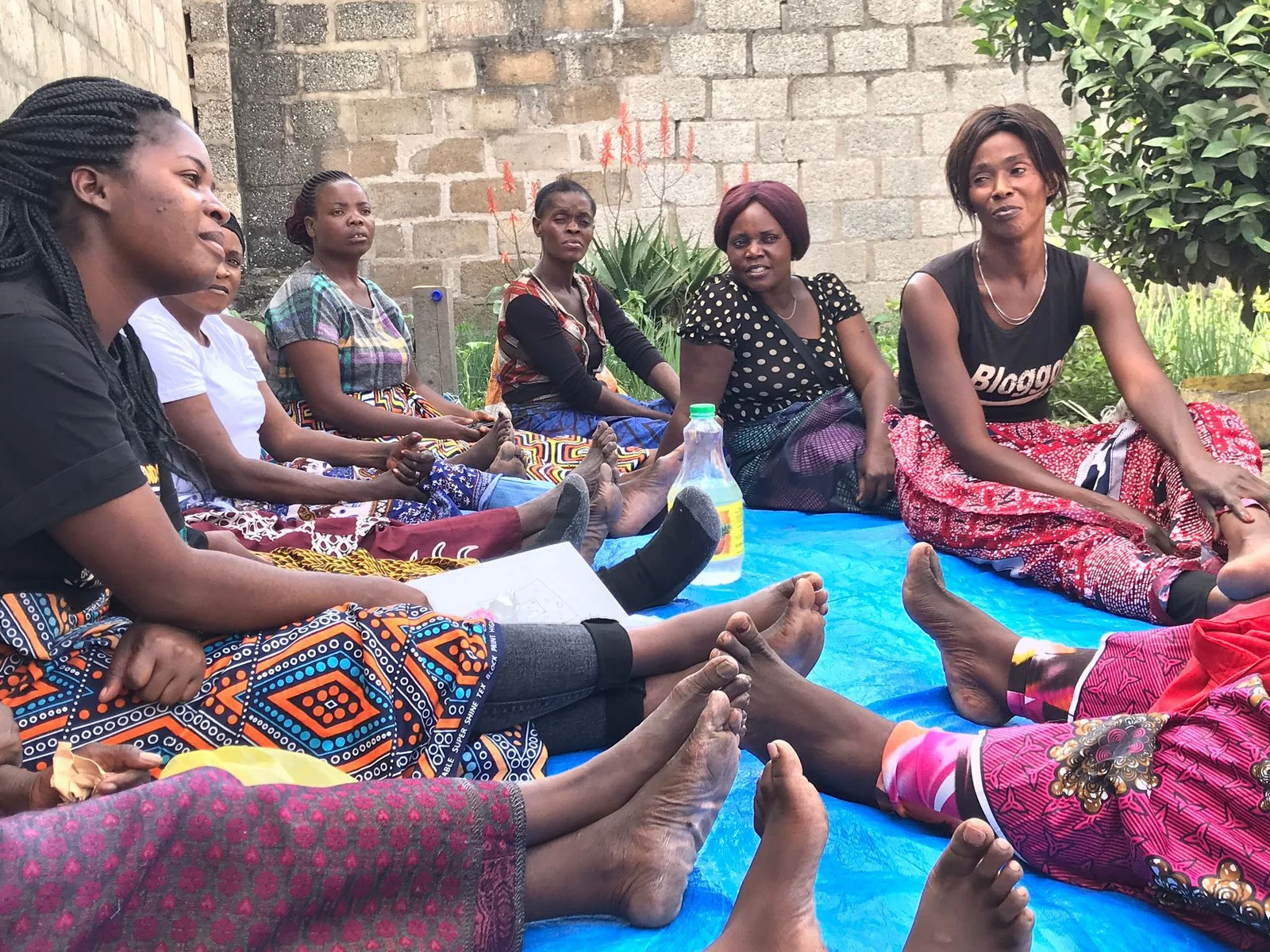
Phiri is among the estimated 280 million people around the globe who experience depression. Ranging in severity, the condition can have big implications for people’s daily functioning and quality of life. But while depression is widespread, options for mental health treatment are scarce, especially in low- and middle-income countries. In Zambia, for instance, there was an estimated total of 25 psychologists and psychiatrists as of 2020.
Instead of relying on mental health professionals, StrongMinds offers group therapy facilitated by trained community members — often clients who have completed the treatment themselves, like Phiri. This group therapy model has proven to be an effective way to treat depression. Since the organization launched in 2013, half a million people have gone through the treatment program. Three-quarters of participants screened as being free of depression symptoms two weeks after completing it.
“What we’ve learned in 11 years is that depression treatment can be, what we call, democratized,” says StrongMinds founder and executive director Sean Mayberry. “You can take it out of the hands of doctors and nurses and give it to the community itself.”
Mayberry started the organization after reading an article about how interpersonal therapy led by non-mental health professionals had proven to be an effective treatment for depression in villages in Uganda. Mayberry, who had a background as a diplomat and social marketer, saw potential to scale up this form of treatment to expand mental health support in places where it is needed.
Since its launch, StrongMinds has grown to be well-established in Uganda and Zambia, and has more recently expanded to Ethiopia, Kenya, Nigeria and a pilot in the US.
Crushed by negative news?
Sign up for the Reasons to be Cheerful newsletter.
Interpersonal group therapy, as the approach StrongMinds uses is known, focuses on identifying factors that trigger an individual’s depression, such as life changes like moving from a rural to an urban area, grief or social disagreements. Over six weeks, participants join a group of 10 to 12 people who share their personal experiences and help each other brainstorm strategies to address the triggers contributing to their depression. Participants try out strategies as homework, then share how it went with their group.
“It’s really taking away the mysticism around depression and giving it into the hands of the individual and leveraging the group,” Mayberry says. “It’s the group helping each other to get better.”
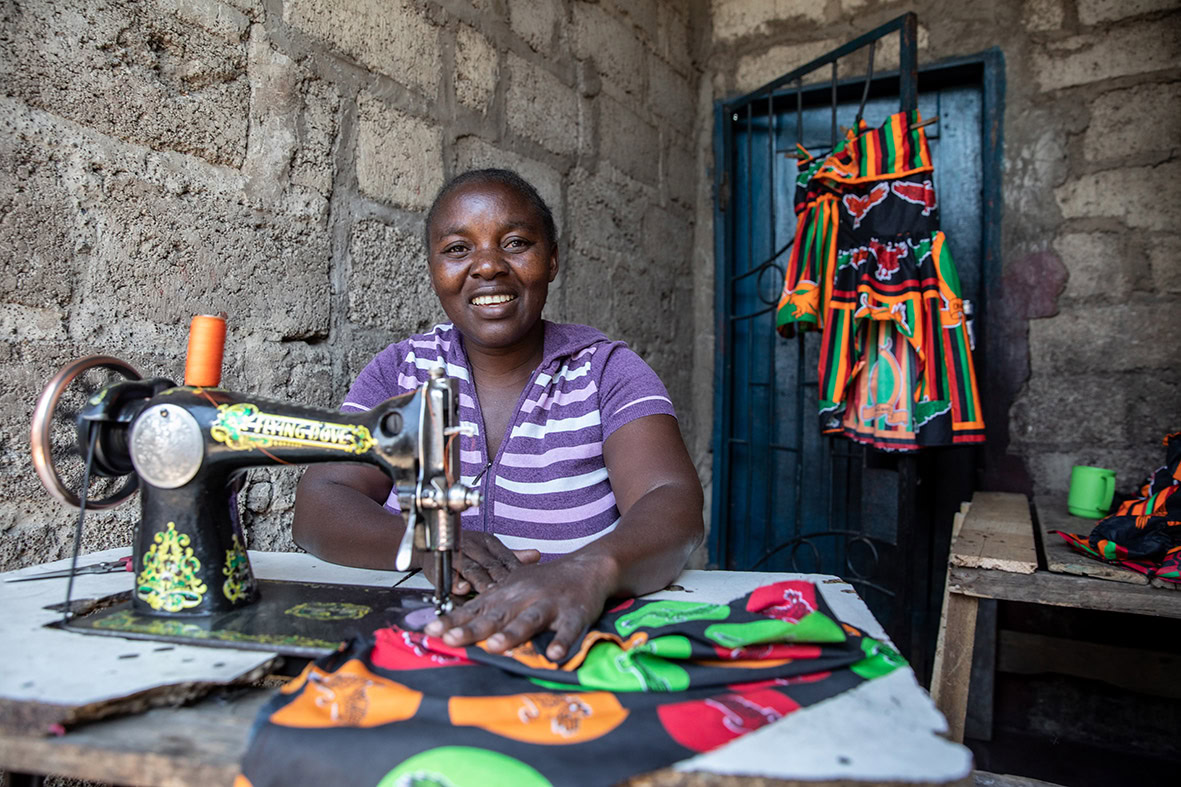
StrongMinds focuses on treating women, in part because they experience depression at a higher rate than men. But there’s another reason, explains Mayberry. When women heal from depression, benefits ripple through their families and communities. Clients report higher rates of participating in work, and improvements in their families’ food security and their children’s school attendance. The organization has also expanded to work with adolescents, both male and female.
Almost 95 percent of group therapy programs are now run by “volunteers.” These are often former StrongMinds clients, teachers or community health workers, care providers who have lower levels of medical training. These volunteers, who receive a stipend, are trained to screen potential clients and to facilitate therapy sessions.
Beyond expanding capacity for treatment, the community-based approach offers another important benefit, according to Chilufya Chimbala, peer therapy group program manager in Zambia. As members of the community, the volunteers help build trust.
“Volunteers live in the community,” she says. “They understand the daily challenges.”
Chimbala sees a big need for mental health support in Zambia. StrongMinds reaches potential clients by going door-to-door through neighborhoods. It can be challenging, she says. Often, people who are depressed don’t want to engage. But it helps to meet people where they are and offer treatment right in their communities.
“There isn’t a lot of awareness of mental health,” Chimbala says. “So when you get in the communities to speak about mental health, translate the symptoms in the local languages that people speak, then they’re able to relate.”
After Priscilla Chama’s husband died suddenly, she struggled. She couldn’t concentrate, and lost interest in doing any activities.
When a woman working with StrongMinds came to Chama’s door, she decided to go to a group therapy session. During the first meeting, Chama didn’t feel comfortable speaking about her personal story. But as other women in the group began to share, she started to open up.
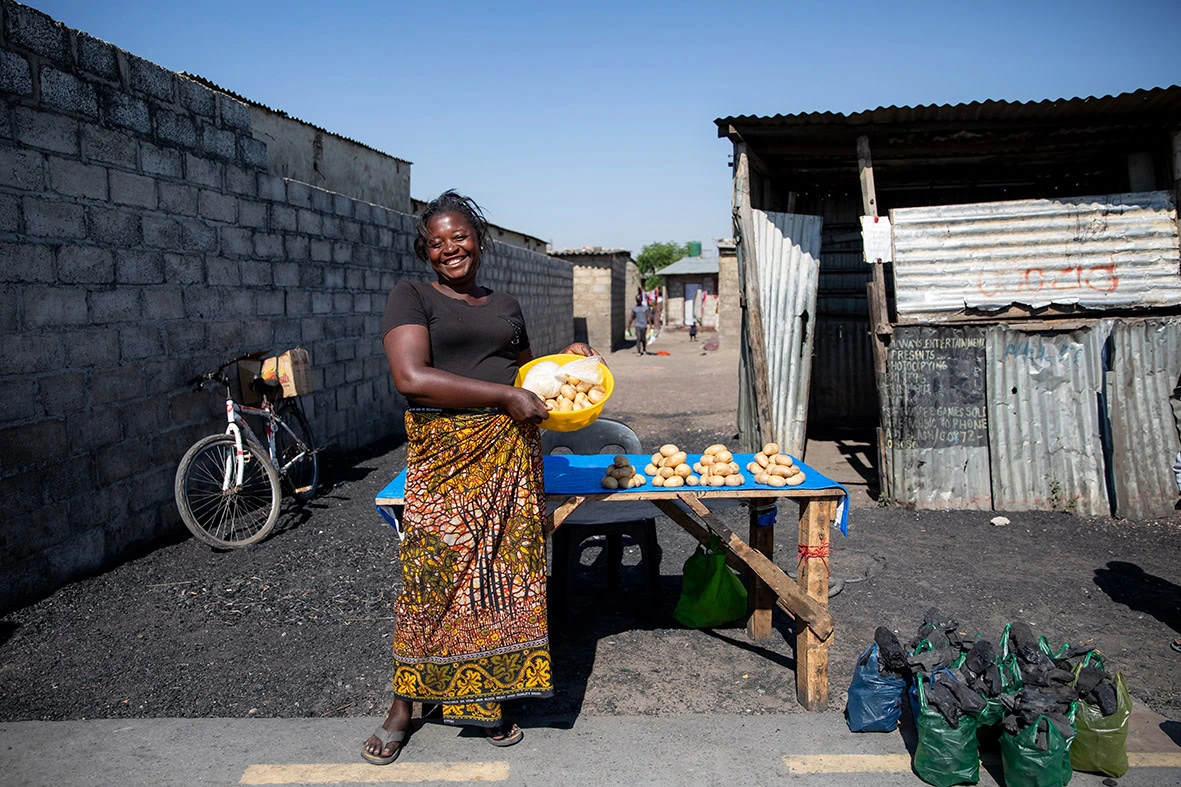
“You become friends with everyone there,” she says. “You learn from other people’s experience, you also tell them your experience.”
At one session, she was given homework to imagine her husband was seated in an empty chair and to speak with him. It was an intense emotional experience, she recalls. But the exercise helped her to accept her husband’s death.
Like Phiri, Chama trained to become a facilitator after she completed her own treatment. Both women now work in the area around Lusaka, Zambia’s capital and biggest city. It can be challenging to get women to participate. Many ask if they’ll get any compensation, and women often don’t have much time to go to the sessions.
Chama sees the positive impact the treatment has on the groups she facilitates. “It is really a benefit to the community,” she says.
StrongMinds isn’t the only organization that uses an approach of training people with little or no health background to provide mental health services. Friendship Bench, an organization based in Zimbabwe, similarly mobilizes lay people to facilitate mental health support. That use of community members is an “important innovation” to expand mental health support, according to Mark Van Ommeren, who heads the mental health unit of the World Health Organization’s Department of Mental Health and Substance Abuse.
Van Ommeren says StrongMinds is particularly notable for how the organization has been able to scale its services up, while adhering to an evidence-based model that has been tested and proven in African contexts.
“There is an enormous amount of people that are suffering [from] depression, and also other disorders,” Van Ommeren says. “They’re making a difference.”
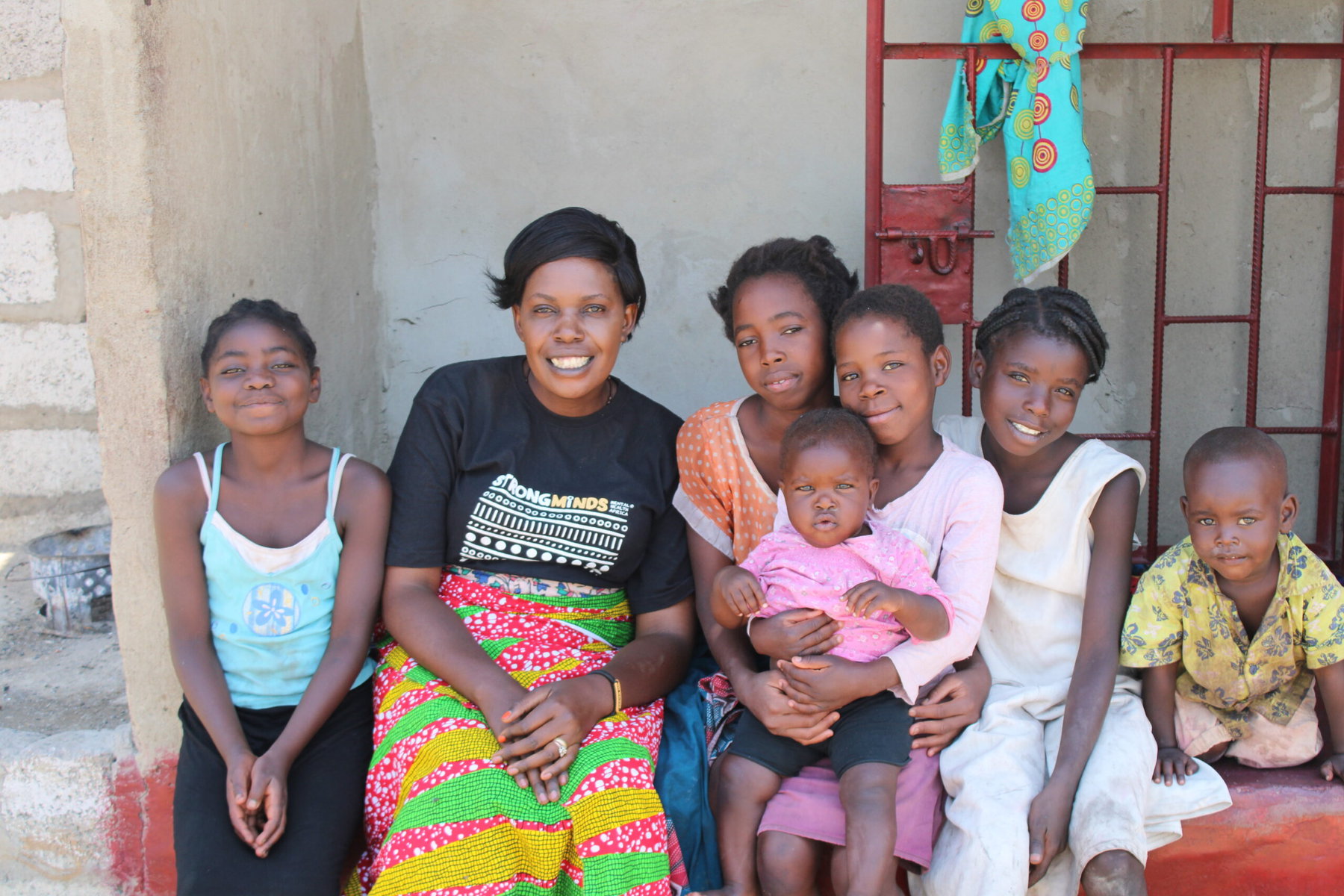
Maintaining the quality of StrongMinds treatment as the organization expands is a challenge, acknowledges Mayberry. Volunteers go through regular training refreshers. Surprise audits check in on the quality of programs. And the organization is rigorous about screening clients throughout treatment to gauge their symptoms and collecting data on outcomes.
Over the last decade, StrongMinds has refined its approach, and reduced the course of treatment from more than $400 per patient a decade ago to $40 — which the organization fully covers so participants receive treatment for free. While this is a relatively low price tag for mental health treatment, Mayberry says funding remains a limitation.
For women who struggle with depression, the group therapy can have a huge impact on their lives. Phiri, who went through the treatment in 2020, says it helped her to connect with people again. Now, she enjoys bringing that support to others.
“I really want to see people get out from depression,” she says. “It’s my passion.”


